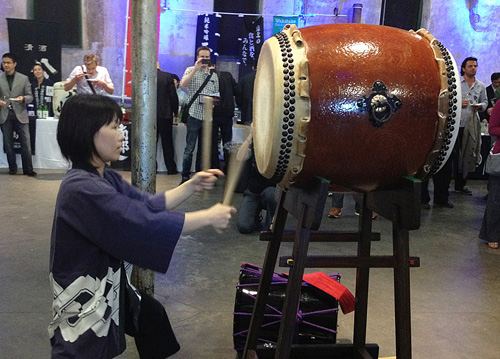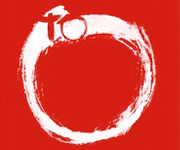20 May
P. Anne Winter writes:
Ruth has offered me a one-time opportunity to let you readers in on a big secret. For those who love good sake and its tantalizing variety of flavors, Kampai is about to celebrate its third annual tasting event. It costs more than our usual free or almost-free entry fee guidelines for mention in our blogs, but if you love sake with a passion, and want to learn more about the sake-making process from the masters, the fee of $80 is well worth while.
In addition, entertainment such as group dancing to large taiko drums will also take place. To add to the atmosphere, many women from the Toronto Kimono Club, will be joining the festivities dressed in full regalia. You will be immersed in a completely Japanese atmosphere!
Toronto has a world-class sake company called Izumi. The sake is made completely in Canada and the store can be found in the Distillery District. Along with other international distilleries in Europe, North America, and of course Japan, Izumi along with the Sake Institute of Ontario has initiated an annual educational and tasting festival.
The fee includes samplings of over a hundred different sakes while munching on delicious Japanese hors d’oeuvres from about 12 Japanese restaurants. Each distributor has a booth and is very obliging when asked about the process that makes its sake unique. Good questions to ask each are: Where does the water come from? Where is the rice grown? What type of polishing is required for this brew? Or was alcohol added to the koji which is roughly the mixture of rice and yeast that ferments to make up the brew? This means that it is a less desired brew than if no alcohol was added.
Before you taste the sake, you might ask the attendant to explain what you should be looking for. Answers will open up your senses to what works to make a fine sake. Remember to smell your sample as you swirl it in front of your nose. Then take a sip and keep your mouth slightly open as you enjoy the smell and taste while you breathe in and out. Tasting is as much a fine art as the creation of this rice-based drink.
The trick is to remember which samples you liked and then hope that the LCBO will carry them.
My friend Yufuko Mochizuki was my guest for the preview Kampai event this year. I asked her what her favorite sake was from the mini-tasting bar that was set up. It had all the award-winning sakes from Toronto’s first tasting challenge last year. She replied, “My favorite one is Okunomatsu Junmai Dai-Gingo. It’s easy to drink and rich in aroma. This sake is good with most Japanese food without interrupting the taste.” Very practical, I found it a favourite also.
Kampai is a contemporary way of learning about sake. The food is primarily fusion. This year Mexican food will be offered which is surprising but who knows. I will wait judgment until I taste it with a recommended paring of sake.
Fusion food is not my preferred choice as I enjoy subtle tastes when eating Japanese food. This means that i have slim pickings when I try to eat enough when enjoying this event.
There have been very helpful information talks with film on the complexity of sake making as well as regions that are renown for their breweries. If you get a chance, check out the talks.
I would like to mention just a word for those who are not used to going to wine or sake tastings. There are buckets so that you do not drink all that you may want to taste. Please be sensible. Ask for and use these buckets. Sake is deceiving and the alcohol content is often 15% and higher. Drink lots of water. Bottles are supplied.
Last but not least, please take a taxi or have a friend pick you up so that you can stay safe.
This event is on Thursday May 29, 6.30 – 9pm. It’s at Building no. 28, Distillery District. Mill Street and Parliament. For more information, see: http://kampaitoronto.com
Please also see my Blog from 2011: https://www.torontomulticulturalcalendar.com/2011/10/11/189-brewing-world-class-japanese-sake-in-toronto/ .



